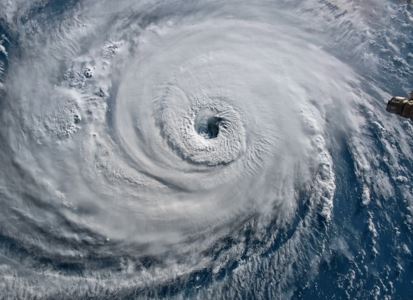Have you recently moved to Florida? It’s a great place to live, with lots of benefits for individuals and families alike. However, it is important to know what you’re getting yourself into when it comes to the climate—and most importantly, when it comes to hurricanes. With the 2021 hurricane season once again poised to break records, it’s time to educate yourself on the reality of being a Florida homeowner. Keep reading for the top five things new Florida residents should know about hurricane season, and remember that for all your storm and water damage restoration needs, you can always count on our experts at FP Property Restoration.
5 Hurricane Season Tips for New Florida Homeowners
- Prepare for the Long Haul: Hurricane season starts in June, and many assume that it is most intense during the summer, when humidity spikes. But while it is true that tropical storms are fueled by warm weather, fall can be just as hectic for hurricanes. Hurricane season typically peaks between late August and early October, when surface temperatures on the Atlantic Ocean reach their peak. Although storm season goes from the beginning of June to the end of November, there’s not one period during these months that experiences more hurricanes than the others. But September and October are the months most likely to experience hurricanes rated Category 3 and above.
- Always Have Supplies on Hand: There are a few things every Florida homeowner should have in case a hurricane should hit. Essentials include water, batteries for flashlights and radios, and nonperishable foods, in case you suddenly lose power. It’s also a good idea to have cash and gas cans, should you have to leave in a hurry, portable chargers for phones, computers, and other electronic devices, and a first-aid kit, in the event that any accidents happen. And finally, we suggest installing a back-up generator and putting reinforcements on your doors, garage, and windows, so nothing blows through them in the midst of a hurricane.
- It’s Important to Have a Plan: The safety of your family during a hurricane is almost entirely dependent on creating a plan beforehand. In addition to getting together supplies, you should try to decide beforehand whether you are going to hunker down on your property or try to evacuate if a storm hits. Every household is different, and some homes may be better prepared to sustain a hurricane than others. But the last thing you want to do in any scenario is flee at the last moment, and potentially encounter clogged roads and rampant closures. If you live in an evacuation zone, you will have to make a choice whether to stay in a shelter or another part of the state. In some cases traveling as little as a few miles inland can be enough to protect you from flooding and storm surges, so picking a designated meeting spot ahead of time can save you a ton of hassle down the line.
- Never Underestimate the Power of a Hurricane: Pretty much the worst thing you could do as a new homeowner in the state of Florida is to assume your property will be fine when a storm touches down. Oftentimes, you’ll hear newcomers in the state say things like “The Storm is a Category 1, so I’ll probably be fine.” But even a Category 1 storm can come with winds up to 95 mph, which is strong enough to damage houses and lead to downed power lines. The Category factor also does not necessarily account for how much rain will occur, meaning flooding may still be a possibility, even if windspeed is relatively low. Bottom line: even a Category 1 hurricane can be a reason to worry, so never leave your home’s safety to chance.
- Know What Comes Next: Even if your house experiences minor damage during a hurricane, you can end up with big problems down the line if you do not act quickly to begin the recovery process. It’s also important to consider the fact that you may need to negotiate with your insurance company, as your storm damage coverage might not be as comprehensive as you assume. Fortunately, our professionals at FP Property Restoration know how to detect and repair even hidden damage as quickly as possible, and we’ll be there to help you navigate the insurance process every step of the way. From thermal inspections to mold remediation, we promise to ensure your property is safe, secure, and fully functional in the wake of hurricanes and other disasters.
FP Property Restoration is available by phone 24/7 at (888) 408-2335, or you can contact us online.


